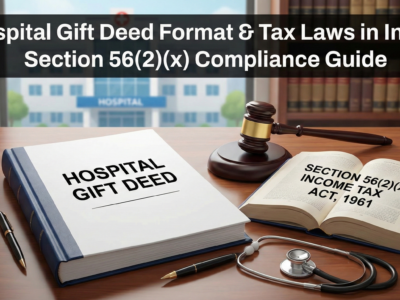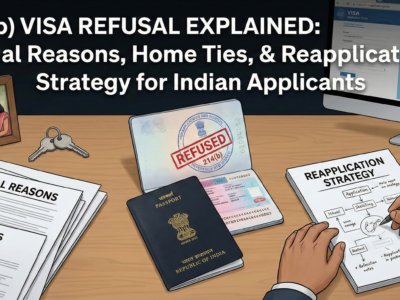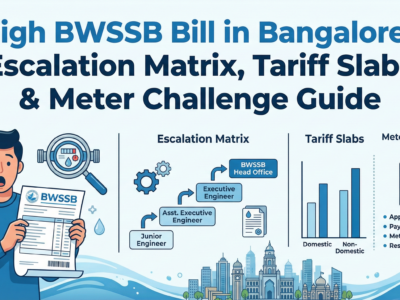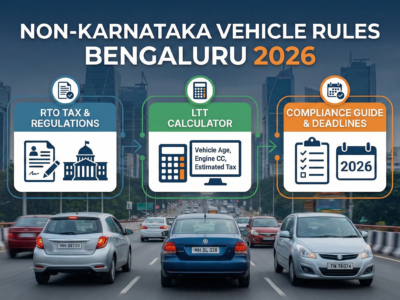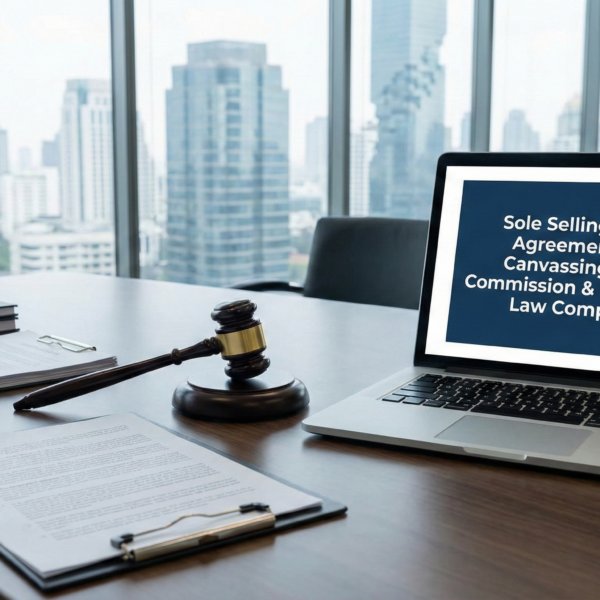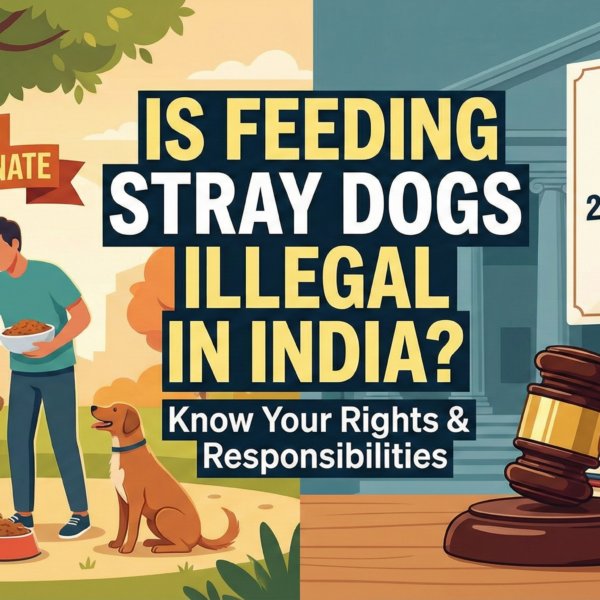Denied Health Insurance Claim in India? Legal Guide Checklists Templates
Facing a wrongful health insurance claim denial can be one of the most stressful experiences for a family, especially during a medical emergency. You’ve paid your premiums diligently, yet when you need it most, the insurer rejects your claim on arbitrary grounds, leaving you feeling helpless. But you are not powerless. This comprehensive guide, is your step-by-step legal action plan. We will walk you through your rights, the official grievance process, and provide ready-to-use complaint templates to help you effectively challenge the insurer and secure the compensation you are legally entitled to.
Arbitrary Health Claim Denial? Know Your Legal Power.
A comprehensive legal report, distilled into an actionable guide for Indian policyholders. Understand the law, the process, and the precedents to effectively challenge your insurer.
Updated: August 2025
In Crisis? Immediate Steps to Take on Claim Denial
If you're at the hospital and have just been denied a cashless claim, the situation is stressful. Panicking can weaken your case. Here’s your emergency protocol.
1. Demand Written Reason
Refuse to accept a verbal denial. Insist on an official email or letter stating the exact reason for rejection. This is your most critical piece of evidence.
2. Document Everything
Note the time, date, and name of the person who informed you. Forward all email communication to your personal email ID for backup.
3. Preserve All Records
Pay the hospital bill if you can, but ensure you collect every single original document: final bill, payment receipts, all medical reports, and discharge summary.
4. Do Not Sign Blank Forms
Do not sign any satisfaction vouchers or forms you do not understand. You can write "Paid under protest" on the final hospital bill payment receipt.
Third-Party Administrators (TPAs): Friend or Foe?
Often, your primary interaction is not with the insurance company but with a TPA. Understanding their role is crucial to navigating the claims process effectively.
Who is the TPA?
A TPA is an intermediary appointed by your insurer to handle the operational aspects of claims, such as processing paperwork, issuing authorization letters, and coordinating with hospitals. They are essentially a service provider for the insurer.
Key Things to Remember:
- The TPA is not the Insurer: The final decision to approve or deny a claim rests legally with the insurance company. However, the TPA's recommendation is almost always accepted.
- A TPA's Denial is the Insurer's Denial: Legally, you do not need to appeal separately to the insurer after a TPA denial. The denial is considered to have come from the insurer itself.
- Keep Communication Formal: Treat every communication with the TPA as official communication with your insurer. Keep records of every email and phone call.
The Bottom Line
While the TPA manages the process, your legal contract is with the insurance company. When you file a grievance or legal complaint, it must be directed against the insurance company, not the TPA. The insurer is vicariously liable for the actions and negligence of its appointed TPA.
Your Rights: The Legal Bedrock of Your Claim
An insurance policy is a contract of 'Utmost Good Faith' (*uberrima fides*). This isn't just a phrase; it's a powerful legal doctrine that imposes reciprocal duties on you and your insurer. An arbitrary denial is often a breach of these duties.
Utmost Good Faith
A two-way street. Your duty is to disclose material facts. The insurer's duty is to be transparent, use clear language, and act fairly. Ambiguity in the policy is interpreted in *your* favor.
Deficiency in Service
Defined under the Consumer Protection Act, 2019, this is your primary ground for complaint. It includes wrongful claim denial, violating IRDAI timelines, or any negligence causing you loss.
Unfair Trade Practice
If the insurer misrepresented policy benefits, used deceptive language, or engages in a pattern of wrongful denials, it can be classified as an illegal unfair trade practice.
Know Your Insurer's Obligations (IRDAI Mandates)
The IRDAI (Protection of Policyholders’ Interests) Regulations, 2017, are not just guidelines; they are legally enforceable rules. Quoting these in your complaint shows the insurer you are well-informed.
Timelines are Non-Negotiable
Insurers must adhere to strict timelines. Failure to do so is a deficiency in service.
- 7 DaysFor raising queries on a claim.
- 15 DaysFor requesting more documents after the first set.
- 30 DaysTo settle or reject a claim after receiving the last required document.
Communication Must Be Transparent
Vague and verbal communication is not permitted.
- Any claim denial must be in writing.
- The denial letter must specify the reasons for denial, referencing the specific policy clause.
- The insurer must detail the internal grievance redressal procedure in the denial letter.
The Official Grievance Pathway (Pre-Court)
You must follow a structured, multi-tiered grievance process before taking legal action. Each step is a mandatory building block for a stronger case and creates an official record.
Estimated Timeline to Resolution
Complaint to GRO
0 - 15 Days
IRDAI Escalation
~ 30 Days from GRO complaint
Insurance Ombudsman
3 - 4 Months
Consumer Commission
1 - 2 Years
Insurer's GRO
File a written complaint with the company's Grievance Redressal Officer (GRO). They are legally required to resolve it in 15 days.
IRDAI Bima Bharosa
Unsatisfied? Escalate to the IRDAI's portal. This puts your case on the regulator's radar and creates a crucial digital footprint.
Insurance Ombudsman
A powerful, free, and fast alternative to court. An award passed is binding on the insurer, but not on you. It's a "no-lose" proposition.
Your First Move: Complaint Template for the Insurer's GRO
This is your first official written communication. Be firm, factual, and clear. Send this via email to the official Grievance Redressal email ID of the insurance company. You can find this on their website or in your policy document.
To,
The Grievance Redressal Officer,
[Name of Insurance Company],
[Company Head Office Address].
Date: August 29, 2025
Subject: Formal Complaint against wrongful denial of Health Insurance Claim - Policy No. [Your Policy Number]
Reference:
1. Policy Holder Name: [Name of Primary Insured]
2. Patient Name: [Name of Patient]
3. Policy Number: [Your Policy Number]
4. Claim Reference Number: [Your Claim Number]
5. Hospital Name: [Name of Hospital, e.g., Manipal Hospital, Mukundapur, Kolkata]
6. Date of Admission: [Date of Admission]
Dear Sir/Madam,
I am writing to formally register a complaint against the arbitrary and unlawful denial of my health insurance claim, which constitutes a severe deficiency in service and a breach of our insurance contract.
Despite being a loyal customer and having paid all premiums in full for [Number] years, my request for cashless treatment was wrongfully denied without any valid written justification. The verbal reasons provided were baseless and contrary to the terms of my policy.
The key issues are as follows:
1. **Wrongful Denial of Claim:** My claim was denied on arbitrary grounds ([Mention the reason given, e.g., related to BMI]) which are not supported by my medical records or the policy terms and conditions.
2. **No Written Communication:** The denial was communicated verbally, which is a direct violation of IRDAI (Protection of Policyholders’ Interests) Regulations, 2017, which mandate that any repudiation of a claim must be made in writing with specific reasons.
3. **Breach of Utmost Good Faith:** My earlier hospitalization in [Month, Year, if applicable] was fully covered under the same policy, establishing a precedent of acceptance of my health declarations. The current denial on previously accepted grounds is a breach of contract.
4. **Extreme Harassment:** The denial has caused immense mental and financial distress to my family during a medical emergency, forcing me to arrange funds out of pocket.
This conduct constitutes a clear deficiency in service under the Consumer Protection Act, 2019, and an Unfair Trade Practice.
I hereby demand the immediate review and reversal of this wrongful denial. I am proceeding with the payment to the hospital and will be submitting a claim for full reimbursement.
Please consider this a formal complaint under your internal grievance redressal mechanism. I expect a written response and resolution within the IRDAI-mandated timeline of 15 days, failing which I will be constrained to escalate this matter to the IRDAI and the Insurance Ombudsman without further notice.
Sincerely,
[Your Name]
[Your Address]
[Your Mobile Number]
[Your Email Address]
Escalating Your Case: Summary for IRDAI Bima Bharosa Portal
If you do not receive a satisfactory response from the GRO within 15 days, your next step is to file a complaint on the IRDAI's Bima Bharosa portal. The portal has text limits, so your complaint needs to be a concise summary. Use the following points-based format.
Summary of Grievance
1. Policy & Claim Details: Policy No: [Your Policy Number], Claim No: [Your Claim Number]. Insurer: [Name of Insurance Company].
2. Issue: Wrongful and arbitrary denial of cashless health claim for hospitalization at [Hospital Name] on [Date of Admission].
3. Insurer's Stated Reason for Denial: [Briefly state the reason given, e.g., "Unfounded BMI grounds"].
4. Violation of Regulations: The denial was communicated verbally, with no formal repudiation letter provided. This violates IRDAI regulations which mandate written communication for any claim denial.
5. Deficiency in Service: Despite timely premium payments for [Number] years and a previously approved cashless claim in [Month, Year], this legitimate claim has been denied, causing immense financial hardship and mental agony. The insurer has failed to act in good faith.
6. Grievance History: A formal complaint was sent to the insurer's Grievance Redressal Officer on [Date you sent email to GRO]. No satisfactory resolution has been received within the stipulated 15-day period.
7. Relief Sought: Immediate intervention from IRDAI to direct the insurer to approve the claim and reimburse the full amount of Rs. [Total Hospital Bill Amount].
Decoding Your Denial: Understanding the Repudiation Letter
The insurer's formal denial letter is the cornerstone of their defense and your challenge. Understanding its language and common weak points is crucial. Insurers often rely on vague, boilerplate reasons that can be legally challenged.
Common (and Often Invalid) Reasons for Rejection:
-
"Non-disclosure of Material Fact"
Their weakest argument. They must prove the non-disclosed fact was 1) known to you, 2) deliberately hidden, and 3) has a direct nexus to the current ailment. This is a very high bar for them to clear.
-
"Breach of Policy Clause 4(b)" (or similar vague reference)
This is intentionally obscure. They are legally required to quote the exact policy clause and explain how it applies to your specific case. A vague reference is a sign of a weak denial.
-
"Hospitalization Not Justified / Could Be Treated via OPD"
Your treating doctor's opinion holds precedence. An insurer's panel doctor, who has not examined you, cannot arbitrarily overrule the on-ground medical assessment.
Your Counter-Argument Checklist
When you reply, address their points directly:
- State that all material facts were disclosed to the best of your knowledge.
- Demand the exact policy clause and a detailed explanation.
- Cite the *Contra Proferentem* rule for any ambiguous clauses.
- Attach a letter from your treating doctor certifying the necessity of hospitalization.
- Put the burden of proof back on them to establish their claims.
Choosing Your Forum: A Strategic Comparison
If the grievance process fails, you must choose between the Consumer Commission and a Civil Court. For nearly all health insurance cases, the Consumer Commission is the strategically superior choice.
| Parameter | Insurance Ombudsman | District Consumer Commission | Civil Court |
|---|---|---|---|
| Cost of Filing | None | Nominal | High (Ad Valorem Court Fees) |
| Resolution Timeframe | 3-4 Months | 1-2 Years | 3+ Years (Often much longer) |
| Jurisdiction Limit | Up to ₹50 Lakhs (Claim Value) | Up to ₹50 Lakhs (Premium Paid) | Based on Claim Value |
| Compensation for Harassment | No | Yes | Yes (as Damages) |
| Procedural Complexity | Low | Medium (Summary Procedure) | Very High (Formal & Rigid) |
The Game-Changing Rule:
Jurisdiction for Consumer Commissions is based on the **premium paid**, not the claim amount. This means almost all high-value health insurance claims can be filed in the more accessible District Commissions.
Beyond the Bill: What to Include in Your Total Claim
When you file a complaint in the Consumer Commission, your claim isn't just for the hospital bill. A wrongful denial causes significant financial and mental distress, and you are entitled to be compensated for it.
Components of a Comprehensive Consumer Complaint
1. The Claim Amount
The total hospital bill that was denied. This is the principal amount.
2. Interest on the Amount
You can claim interest (typically 9-12% per annum) from the date of denial until the date of payment for the financial loss you suffered.
3. Compensation & Costs
This includes a reasonable amount for the mental agony and harassment caused, plus the litigation costs incurred by you.
Strengthen Your Case: Landmark Judgments
Indian courts have consistently sided with policyholders against arbitrary denials. Citing these precedents can significantly strengthen your complaint. Filter by the legal principle to find cases relevant to your situation.
The "Nexus" Theory
Non-DisclosureAn insurer cannot deny a claim for a non-disclosed condition unless it has a direct causal link (nexus) to the reason for hospitalization. The burden of proof is on them.
Key Case: OM PRAKASH AHUJA v. RELIANCE
Contra Proferentem Rule
Policy AmbiguityIf a policy clause is ambiguous or unclear, it must be interpreted against the insurer and in your favor, as you had no power to draft the contract.
Principle: Upheld by Supreme Court
Common Lifestyle Ailments
Lifestyle DiseasesCourts view conditions like hypertension and diabetes as common. The insurer must prove a direct causal link to the claim, not just point to their existence in your history.
Key Case: Care Health v. Kulbir Singh
Post-Issuance Estoppel
Non-DisclosureOnce an insurer issues a policy after you've disclosed a condition, they are legally prevented (estopped) from later denying a claim based on that same disclosed condition.
Key Case: Manmohan Nanda v. United India
Obesity & Medically Necessary Surgery
Lifestyle DiseasesMedically necessary procedures like bariatric surgery are not cosmetic. Denials based on "cosmetic surgery" exclusions are routinely overturned by consumer commissions.
Principle: Various Consumer Commissions
Burden of Proof
Policy AmbiguityThe responsibility to prove material non-disclosure or misrepresentation lies heavily and squarely on the insurer, not the policyholder.
Principle: Established in multiple rulings
Your Ace in the Hole: The Principle of Estoppel
This is one of the most powerful but least understood arguments in insurance law. If your policy has been renewed for several years without issue, the insurer is "estopped" or prevented from questioning the original proposal form.
What is Estoppel?
The law presumes that the insurer, having accepted your premiums year after year, has accepted the disclosures you made in the original proposal form. They cannot, after a claim arises years later, suddenly turn around and claim you hid something at the time of policy inception.
Practical Example:
You bought a policy in 2020. You mentioned you had high blood pressure. The insurer issued the policy and you renewed it for 5 years. In 2025, you have a cardiac claim. The insurer cannot now deny the claim saying you have a history of high blood pressure. By accepting your premiums for 5 years, they are estopped from using that pre-disclosed condition against you.
How Strong is Your Case? An Interactive Checklist
While not a substitute for legal advice, this checklist can help you assess the strength of your position based on common factors that work in the policyholder's favor. Check all that apply to your situation.
Frequently Asked Questions
Do I need a lawyer for the Insurance Ombudsman? + -
No, you do not need a lawyer. The Ombudsman process is designed to be user-friendly, and you can represent your own case. However, if you are not confident, you can seek assistance from a legal professional to draft your complaint.
What if the insurer doesn't comply with the Ombudsman's award? + -
An award passed by the Ombudsman is binding on the insurance company. If they fail to comply within 30 days, you can escalate the matter to IRDAI. Non-compliance is taken very seriously by the regulator and can lead to penalties for the insurer.
Can I file in the Consumer Commission and with the Ombudsman simultaneously? + -
No. You cannot pursue the same complaint in two forums at the same time. You should first approach the Ombudsman. If you are not satisfied with the outcome, you then have the option to approach the Consumer Commission.
My claim was denied because I didn't disclose my smoking habit. Can I fight it? + -
Yes, you can. The insurer must establish a direct nexus between your smoking habit and the current reason for hospitalization. For example, if you are hospitalized for a fractured leg, your smoking habit is irrelevant. If it's for lung cancer, it's material. The burden of proof is on them to prove this direct link.
The Aggrieved Policyholder's Action Plan
Success lies in a methodical, documented, and sequential approach. Follow this plan to build an undeniable case.
The Sequential Action Plan
- Send a formal complaint via email to the insurer's Grievance Redressal Officer (GRO). This is your official first step.
- If unresolved in 15 days, lodge a complaint on IRDAI's Bima Bharosa portal.
- After 30 days from the initial complaint, file with the Insurance Ombudsman. This is your most powerful pre-litigation step.
- If the Ombudsman's decision is unfavorable or the claim is >₹50L, this is your preferred legal route. Engage a lawyer to file a complaint seeking the claim amount, interest, and compensation for harassment.

